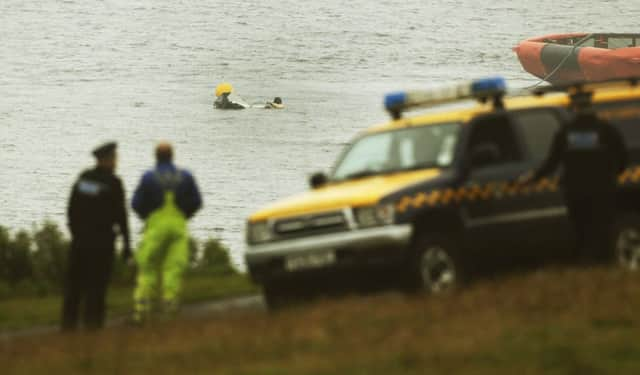Shetland helicopter crash blamed on pilot error


They concluded that the crew of the Super Puma, which crashed into the sea near Sumburgh Airport, had not “monitored effectively” flight instruments. Four of the 16 offshore workers aboard died.
The UK Department for Transport’s air accidents investigation branch (AAIB) said “this allowed the helicopter to enter a critically-low energy state, from which recovery was not possible”. The AAIB also said “no effective action” was taken to level the helicopter.
Advertisement
Hide AdAdvertisement
Hide AdThe report said the 51-year-old commander – who “had a good training and operational record” – could have become focused on looking for visual references to aid landing while descending in cloud.
The findings follow an interim report, months after the 2013 crash, that showed the crew had failed to notice their air speed was decreasing until it was too late to avoid the crash.
No mechanical fault was discovered with the helicopter.
Safety recommendations included requiring pilots licensed to fly through bad weather to receive regular training on how to read the flight instruments for their helicopters. The AAIB also called for seating in large helicopters operating offshore to be arranged so only two passengers would have to use each emergency exit.
The Crown Office yesterday pledged to complete its own investigation as quickly as possible following the report.
A spokesman said: “The report’s findings will be fully considered as part of the parallel investigation by Police Scotland, working with the assistance of the Civil Aviation Authority and under the direction of the Crown.
“The investigation is highly complex and challenging and requires specialist input.”
The Crown Office said a fatal accident inquiry would normally be held once it been decided whether there should be criminal proceedings.
Those who died were Sarah Darnley, 45, from Elgin, Gary McCrossan, 59, from Inverness, Duncan Munro, 46, from County Durham and George Allison, 57, from Hampshire.